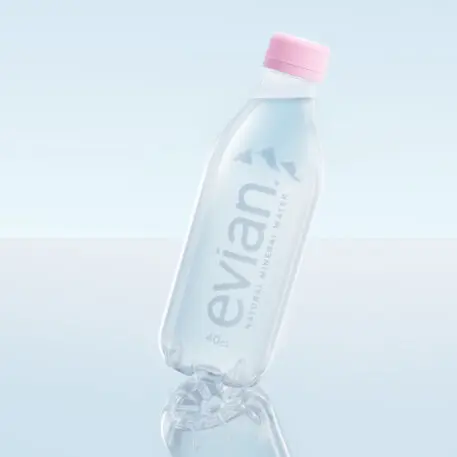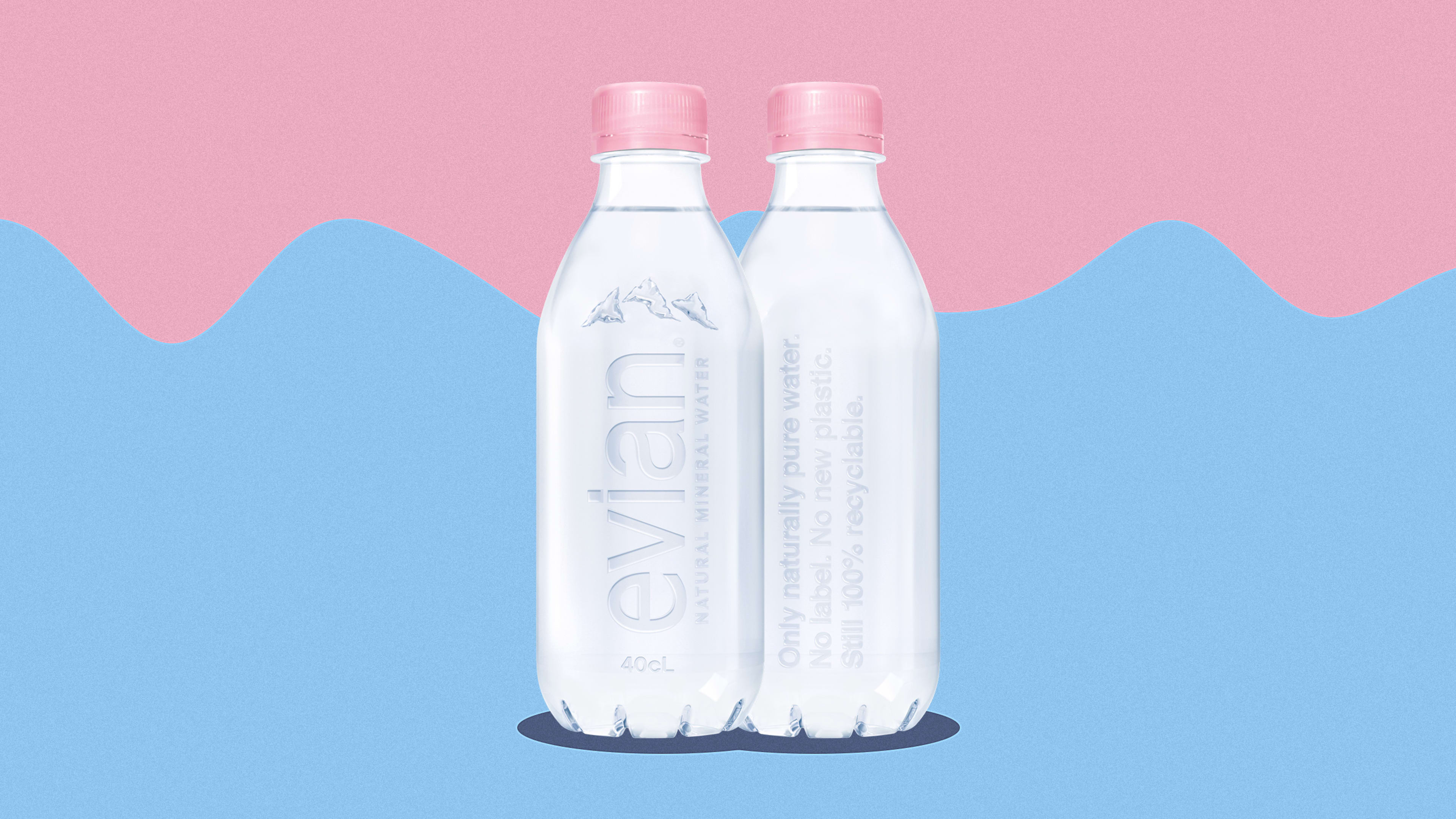When a plastic bottle ends up in a recycling plant, the label attached to it usually isn’t recycled. That’s why a new bottle from Evian was designed to eliminate the label entirely, with the brand name and other details carved into the bottle itself.
“The benefit of being label-free is that our new bottle is a circular packaging solution, meaning there is no waste and all plastic is kept in the economy,” says Shweta Harit, global brand vice president at Evian. The brand is aiming to become fully “circular,” with the goal that all of its bottles will be made from 100% recycled plastic, by 2025. Ultimately, it wants every bottle it makes to end up back in the recycling system in a closed loop.

Labels they are made from a different type of plastic than the PET used in bottles. At recycling facilities, bottles are separated from labels and from caps, which are made from a third type of plastic. While labels are technically recyclable, some facilities don’t have the infrastructure to handle it; others don’t bother. “The labels are disposed of or used to produce energy,” Harit says. “This is a challenge that we as a brand are constantly working on to resolve.”
Eliminating the label wasn’t a simple process. “It took almost two years for us to develop this innovation,” she says. The company had to ensure that the packaging met quality and safety standards as it found a new way to form bottles. The logo is engraved at the stage when the plastic is formed into the shape of a bottle inside a mold. Evian will distributed the label-free bottle in select hotels, restaurants, and hospitality venues, and the brand says it’s a sustainable solution for e-commerce, where there’s no need for barcode labeling.
The bottle is made from 100% recycled plastic, with the exception of the cap. Still, the company’s goal of being fully circular for every bottle it makes will be challenging: only around 10% of plastic packaging is currently recycled globally, and as demand for recycled plastic grows, the supply is limited. “We have been busy co-building effective, efficient, and inclusive systems for collection and recycling with local governments across our different markets,” Harit says.
Other brands have been trying to increase recycling rates for years, with little success. It’s a big problem for anyone trying to achieve a circular system; while variations on disposable bottles like the new design might help, the larger issue is whether those bottles actually make it into the recycling process at all. Brands are working on ways to tackle that issue, too, by addressing the source. Some are shifting to other materials, such as aluminum, that are recycled at higher rates than plastic. Others, including Evian, are taking early steps to explore new business models for refill systems that require reusable bottles, tackling the problem at a more fundamental level before the disposable bottle even exists.
Recognize your brand’s excellence by applying to this year’s Brands That Matter Awards before the early-rate deadline, May 3.
